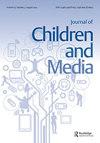Thai teens’ privacy-related practices on Facebook
IF 2.1
3区 心理学
Q2 COMMUNICATION
引用次数: 0
Abstract
ABSTRACT Adolescents of today are at risk of online disclosure due to sharing personal information online without privacy settings. Facebook has the most users on social network site. This study aimed to 1)investigate the type of personal information that adolescents frequently display online 2)identify how adolescents manage their privacy settings on Facebook and 3)examine parents’ intervention on adolescents’ online lives. A self-administered questionnaire was used to survey participants aged 13to18 years old from 6 high schools across Thailand. The study recruited 1,242 adolescents (mean15.7 years,SD = 1.6). Most of adolescents allowed everyone to access their profiles. They shared information including real name (78.7%), phone number (22.7%), birthdate (82.5%), city of residence (62.2%), photo (64.5%), national ID number (2.3%), and credit card number (1%). The older group had more reputation management than the younger group. Parental control and guidance were significantly found in the older group than in the younger group. Different from studies in western countries, most Thai adolescents display their personal information on Facebook. Most adolescents reported that their parents have discussed online privacy and safety with them. However, they still choose to disclose a lot of information. Appropriate parental guidance and control might improve Thai adolescents’ privacy practices. IMPACT SUMMARY Prior State of Knowledge: Adolescents are at risk of oversharing and disclosing their personal information online. In western countries, adolescents discuss with their parents how to be safe on the internet. Approximately 60% of teen Facebook users in US keep their profiles private. Novel Contributions: The majority of Thai adolescents Facebook users shared of their profile publicly. This oversharing behavior may be resulted from cultures norms that Asian people may feel more comfortable than those in the West when mentioning private topics. Practical Implications: Appropriate parental guidance about teens’ online privacy issues should be emphasized in Thailand. Moreover, national recommendation regarding adolescents’ online safety should be considered.泰国青少年在Facebook上与隐私相关的行为
摘要当今的青少年由于在没有隐私设置的情况下在线分享个人信息而面临网络泄露的风险。Facebook在社交网站上拥有最多的用户。这项研究旨在1)调查青少年经常在网上显示的个人信息类型;2)确定青少年如何管理他们在Facebook上的隐私设置;3)调查父母对青少年网络生活的干预。采用自填问卷对来自泰国6所高中的13至18岁的参与者进行了调查。该研究招募了1242名青少年(平均15.7岁,SD=1.6)。大多数青少年允许每个人访问他们的个人资料。他们分享的信息包括真实姓名(78.7%)、电话号码(22.7%)、出生日期(82.5%)、居住城市(62.2%)、照片(64.5%)、国民身份证号码(2.3%)和信用卡号码(1%)。年长组比年轻组有更多的声誉管理。父母的控制和指导在老年组比年轻组明显。与西方国家的研究不同,大多数泰国青少年在脸书上显示自己的个人信息。大多数青少年表示,他们的父母曾与他们讨论过网络隐私和安全问题。然而,他们仍然选择披露大量信息。适当的父母指导和控制可能会改善泰国青少年的隐私做法。影响总结先前的知识状态:青少年有在网上过度分享和披露个人信息的风险。在西方国家,青少年与父母讨论如何在互联网上保持安全。在美国,大约60%的青少年脸书用户将他们的个人资料保密。新颖贡献:大多数泰国青少年Facebook用户公开分享了他们的个人资料。这种过度分享的行为可能是文化规范的结果,即亚洲人在提及私人话题时可能比西方人感到更自在。实际意义:泰国应强调家长对青少年网络隐私问题的适当指导。此外,还应考虑关于青少年网络安全的国家建议。
本文章由计算机程序翻译,如有差异,请以英文原文为准。
求助全文
约1分钟内获得全文
求助全文

 求助内容:
求助内容: 应助结果提醒方式:
应助结果提醒方式:


